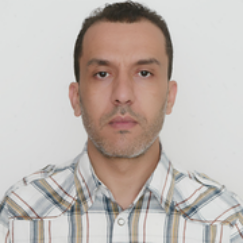
Mohamed Ababou
Work place: National Institute of Posts and Telecommunications, INPT, RAI2S, Rabat, Morocco
E-mail: ababou@inpt.ac.ma
Website:
Research Interests: Computer Science & Information Technology, Applied computer science, Computer systems and computational processes, Theoretical Computer Science
Biography
Mr. Mohamed Ababou received his Ph.D degree from National Institute of Posts and Telecommunications Rabat, Morocco. He received his Master Course in Informatics Telecommunications and Multimedia from Faculty of Science, Mohammed V University, Rabat, Morocco. His current research focuses on computer science and DTN Network.
Author Articles
Energy Efficient Routing Protocol for Delay Tolerant Network Based on Fuzzy Logic and Ant Colony
By Mohamed Ababou Mostafa Bellafkih Rachid El kouch
DOI: https://doi.org/10.5815/ijisa.2018.01.08, Pub. Date: 8 Jan. 2018
The messages routing in a DTN network is a complicated challenge, due on the one hand of intermittent connection between the nodes, the lack of the end-to-end path between source / destination and on the other hand, the constraints related to the capacity of the buffer and the battery. To ensure messages delivery in such an environment, the proposed routing protocols use multiple copies of each message in order to increase the delivery ratio. Most of these routing protocols do not take into account the remaining energy of nodes and the history on the relays that have already received a copy of the message in order to select the nodes that will participate in the message routing. This paper proposes a new approach named EERPFAnt inspired by the ant colony intelligence and improved by the fuzzy logic technique to select the best relay by combining the energy level of the nodes, as well as the information on the relay that have already received a copy of the message to estimate intelligently, the energy level of the nodes at the time of encounter with the desired destination. Simulation results will show that the proposed approach performances are better than those of Epidemic routing protocols, Spray and Wait and ProPHET.
[...] Read more.Other Articles
Subscribe to receive issue release notifications and newsletters from MECS Press journals